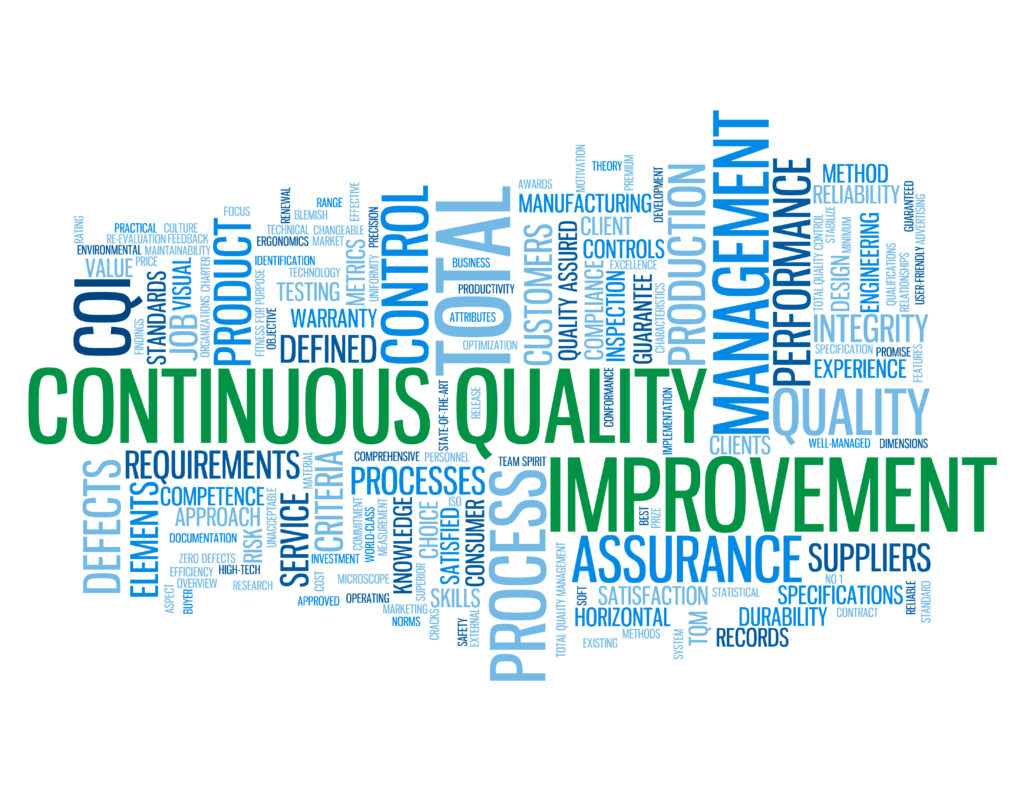
Many people new to the automotive space have heard the acronym “CQI”, and you may have been asked by your customer to conform to one, but what are they… and more importantly why would anyone use them? This article will help you understand the intent and the impact of CQI’s on your business, as well as give a few best practices for adopting them without creating a ton of overhead and nonvalue-added work simply to comply.
In practice CQI manuals are guidelines published by AIAG for more complex subjects relating to the automotive industry. These CQI manuals are prepared by working groups of subject matter experts that all come together and attempt to codify and publish a proposed best practice for the topic under consideration. You may hear the term “CQI” followed by a number, like CQI-9 or CQI-11; this is simply a way to keep track of the CQI as new ones are being released regularly on various topics.
It is worth mentioning here that there are really 2 different families of CQIs. There is the family of BUSINIESS PROCESS CQIs that cover topics such as Warranty Management, Sub Supplier management etc. Then there is the family of MANUFACTURING PROCESS CQIs that specialize in things like rubber compounding, heat treating and injection molding.
If you look up CQI as an acronym, the universal acronym is “Continuous Quality Improvement”; and in effect that is precisely what a CQI document is. These are manuals put out with the intent of passing down best practices in various methodologies to create a universal baseline for suppliers that are engaging in these processes. As an example, if you are an injection molder, then CQI-23 would represent the best practices around injection molding gained over several decades of industry experience. This brings us to why anyone would want to use a CQI.
In short CQIs bring the best practices around process controls and integrations into the organizations quality management system. These best practices have been gained over decades of trial and error by the industry and an analysis of things gone wrong. This is precisely why your customer my request you to initiate a CQI compliance program as part of a business award. It is simply to assure them (and you) that you have the best practices in place for the process to secure a more repeatable and desirable result. I mean manufacturing is hard enough without making the same mistakes others have, and doesn’t it make sense to skip ahead in your development by learning from those things others have learned?
First and foremost, get a copy of the CQI for your area of expertise, if you are a heat treater, get CQI-9 and look at what it is asking you to do. In the technical CQI’s there is typically a Quality System Assessment (where you look at the integration of the CQI in the context of your Quality Management System), and then there are technology specific Job Audits where you will look at the technical aspects of the individual type of equipment you use.
Secondly, get your experts involved. These are deeply technical topics and so your traditional QMS auditors will not be adequate to perform these audits, at a minimum most technical CQI’s require 5 years of experience in the individual discipline being assessed in order to audit.
Thirdly, look for opportunities to integrate the assessments into existing systems, like internal auditing programs, LPA programs or reverse FMEA programs. There are many opportunities to do these assessments while performing your current audits and integrating them into existing activities, this can keep your costs down while improving the results and effectiveness of your CQI program.
Lastly, ask yourself “How can I grow through what I go through?”, you may be asked to comply to a CQI program, but if you really want value from it, we have to go past mere compliance to real adoption. After several dozen clients implementing CQIs, those that focus on the improvement of their processes after adopting them have seen the best returns, while those that simply performed the assessment to comply ended up with additional cost and more obligation that did not yield results.
This is exactly why we developed the training for various CQI’s focusing on how the CQI’s integrate into your existing QMS. Learn the technical requirements while seeing the larger picture of integration to assure your CQI deployment is more than just a conformance program; but rather a value-add activity that moves your bottom line as a result of the investment.
Subscribe to our newsletter.
Subscribe to our newsletter.